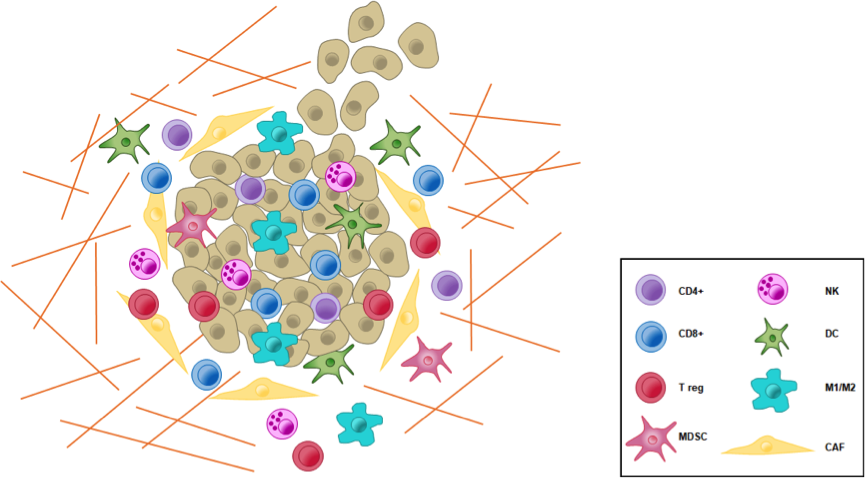Cancer-Immune Microenvironment
Led by Dr. Julie Decock
Cancer remains a major health burden worldwide and the number of newly diagnosed cases is estimated to increase by 70% over the next two decades. Over the years, it has become clear that the tumor and the tumor microenvironment communicate in a complex, dynamic manner. The importance of immune cells within this environment is evident from numerous studies on the immunoscore, immune contexture and multiple immune gene signatures. Our growing understanding of tumor immunology has paved the way for cancer immunotherapy. Using various modalities (cancer vaccines, checkpoint inhibitors, adoptive cell therapy), durable responses have been observed in different types of cancer. However, some tumors do not respond to immune-based intervention and efforts are undertaken to unravel the mechanistic basis of resistance.
Our research group focuses on breast cancer, which is the most common cancer among women, affecting one out of women with cancer globally and one out of two female cancer patients in Qatar. We have a particular interest in triple negative breast cancer, characterized by an aggressive phenotype, poor outcome and lack of targeted therapy. We are currently investigating Cancer Testis Antigens as candidate biomarkers and targets for breast cancer.
Specifically, research efforts in our group are focused in the following areas:
- Characterisation of Cancer Testis Antigen-specific cellular immune responses and identification of MHC class I/II epitopes.
- Investigation of crosstalk between Cancer Testis Antigens and the immune microenvironment in breast cancer.
- Explore the role of hypoxia in the anti-tumor immune response.
- Defining the molecular mechanisms of Cancer Testis Antigens that drive/support tumor development and progression in breast cancer.
- Identification of gene and lncRNA expression signatures underlying the inherent aggressive behaviour of triple negative breast cancer.

The immune microenvironment comprises a multitude of immune cells in dynamic interplay with tumor cells, and plays a key role in determining cancer prognosis and treatment response. CAF, cancer-associated fibroblast; M1/M2, macrophage type M1/M2; MDSC, myeloid-derived suppressor cell; NK, natural killer cell; Treg, T regulatory cells.
Scientists
-

Dr. Julie Decock Senior Scientist
-

-

Dr. Remy Thomas Senior Research Associate
-

Ghaneya Al-Khadairi PhD Student
